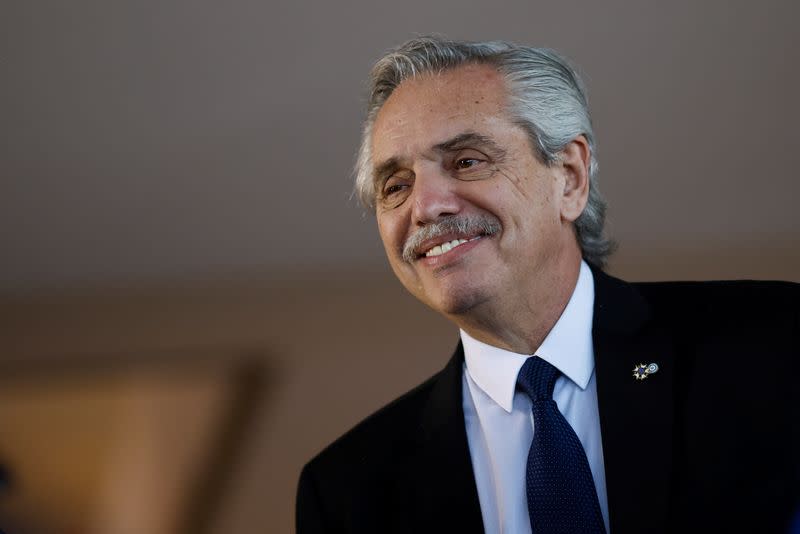'New scenario' opens for Argentina with BRICS invitation, Fernandez says

(Reuters) -A "new scenario" opens for Argentina with the invitation for the South American country to join the BRICS group of developing nations, outgoing President Alberto Fernandez said on Thursday.
The comment from the center-left leader comes at a time of a deepening economic crisis in the South American nation, rocked by triple-digit inflation and a steadily deteriorating peso currency, ahead of October's high-stakes general election.
Fernandez stressed that joining the bloc would be a "great opportunity" to strengthen the nation's economy.
Argentina's current government would like to join BRICS - a group currently made up of Brazil, Russia, India, China and South Africa - because of the bloc's geopolitical and financial importance during a difficult global context, Fernandez said in a speech.
"We open up possibilities of joining new markets, of consolidating existing markets, of raising investment coming in, of creating jobs and raising imports," he said.
By joining BRICS, Argentina will act as an important interlocutor and potential broker for consensus with other nations, Fernandez added.
Argentina was invited to join BRICS along with Saudi Arabia, Iran, Ethiopia, Egypt and the United Arab Emirates, as the group convenes in South Africa this week.
But Fernandez's stance has prompted push-back from leading candidates vying to succeed him.
Javier Milei, the far-right libertarian who took the most votes in this month's three-way primary election, has voiced criticism of BRICS members Brazil and China.
Meanwhile Patricia Bullrich, a conservative who won the internal contest of the main center-right opposition coalition, expressed her disagreement with the move on Thursday.
Fernandez is not in a position to negotiate the country's entry to the bloc, Bullrich argued, adding she disagreed with her country joining BRICS at the same time as Iran and while the war in Ukraine continued.
(Reporting by Gabriel Araujo and Kylie Madry; Additional reporting by Eliana Raszewski; Editing by Christina Fincher and Chizu Nomiyama)


